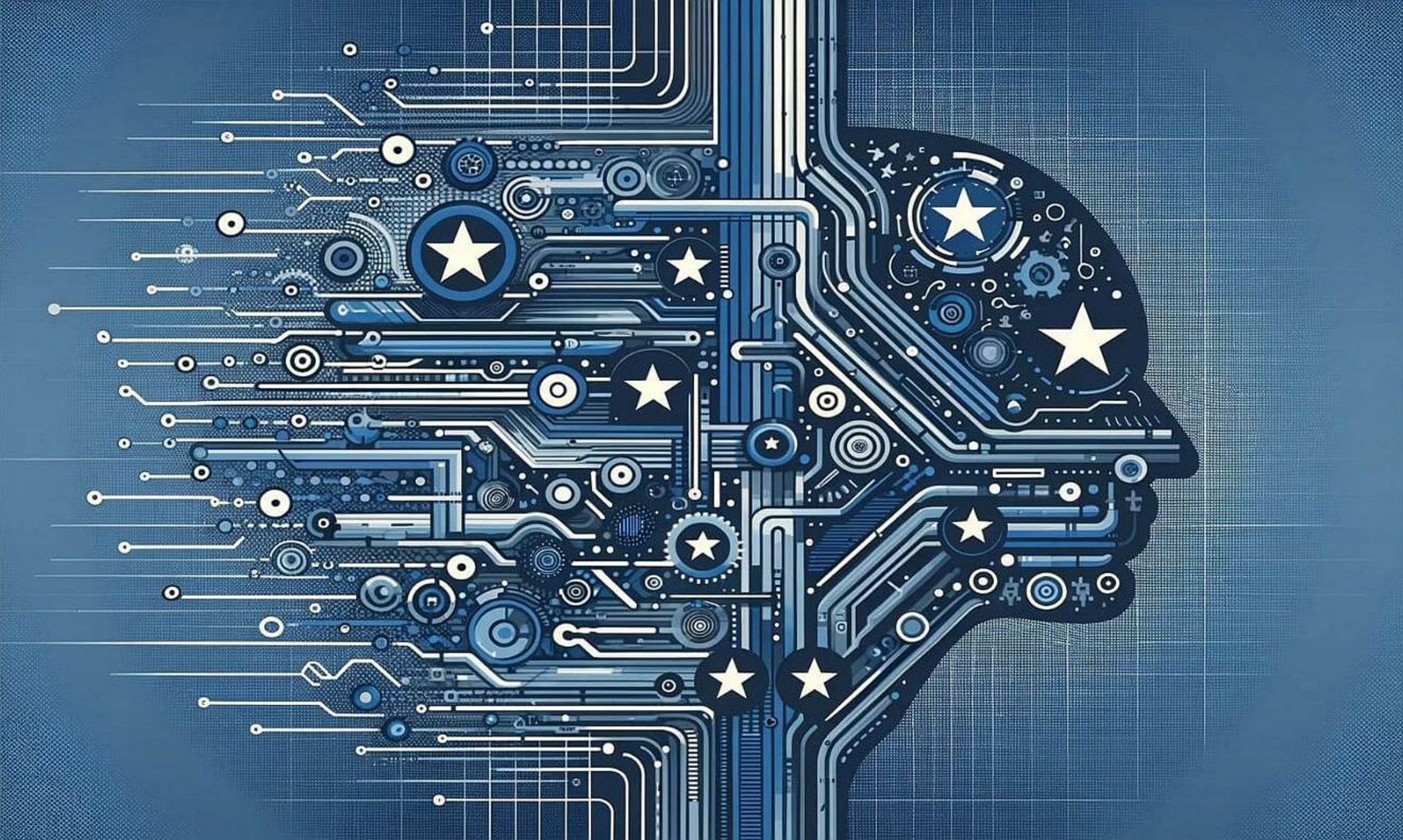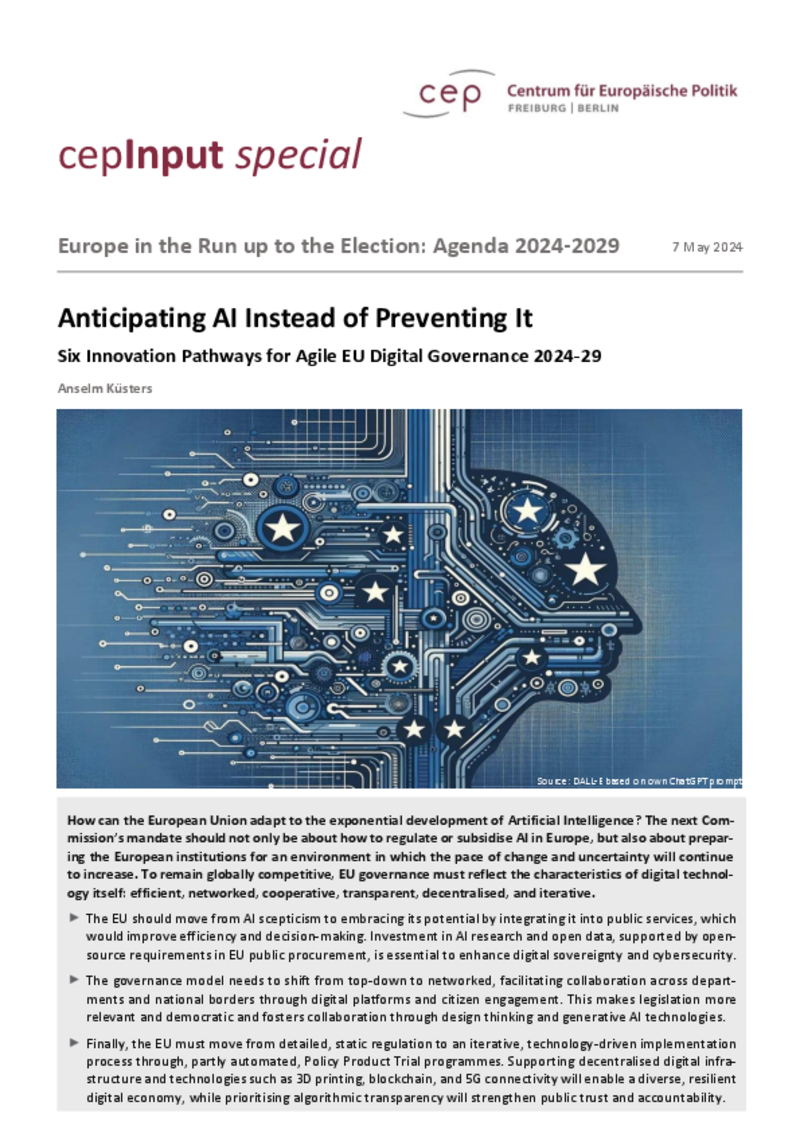
Information Technology
Anticipating AI Instead of Preventing It
cepInput
Anselm Küsters, digital expert at the cep, writes: "The mandate of the next Commission should not only deal with the question of how AI can be regulated or subsidised in Europe, but also with preparing the EU institutions for the pace of change and increasing uncertainty." To remain globally competitive, EU governance must reflect digital technologies themselves by becoming efficient, networked, collaborative, transparent and iterative, the cep researcher stresses. So far, the Commission has limited itself to reducing risks rather than seizing opportunities.
The study makes a number of concrete proposals. For example, AI should be increasingly integrated into public services, for example to automate routine tasks, improve forecasting and make data-driven decisions. More investment in AI research, open data as well as open-source requirements in procurement could strengthen digital sovereignty and cybersecurity. In addition, the current top-down approach must be left behind and more collaboration across departments and national borders must be enabled through digital platforms and citizen participation. This could make legislation more relevant and democratic. According to Küsters, the EU should experiment with policies – similar to software development – and continuously improve them in a step-by-step process.
The study is part four of an eight-part cep series on the challenges of future European policy.
Download PDF
| Anticipating AI Instead of Preventing It (publ. 05.07.2024) | 755 KB | Download | |
 | |||



